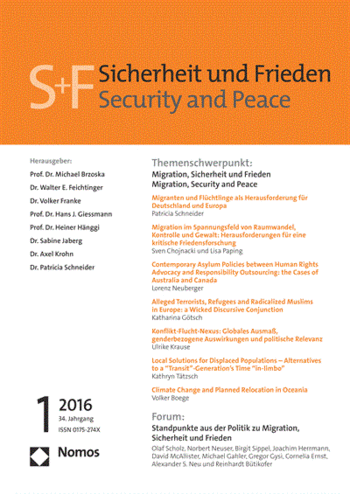Migration im Spannungsfeld von Raumwandel, Kontrolle und Gewalt. Herausforderungen für eine kritische Friedensforschung
Sven Chojnacki, Lisa Paping – 2016
This article examines the interlinkages and ambiguities between the power practices of European migration politics, the changing modes of spatial control, and the resulting dynamics of violence (i.e. extra-territorialization, transit zones, and refugee camps). In order to understand the conflicting processes of (imagined) space production and of securitization of migration control, we use the potential of Critical Geography, Critical Migration Studies and Postcolonial Theories. From the perspective of conflict and peace research, however, one major challenge is to attend to the process dimension, given that the modes of structural and direct violence against migrants have moved from the ‘turbulent margins’ through the ‘circulation zones’ of ‘transit migration’ into ‘Schengenland’. By that argument, we show that territoriality has not lost its meaning, but that processes of re-territorialization and re-bordering lead to conflicting constellations of control: namely to multilayered, fluid border spaces on the one hand, and re-drawings and underpinnings of national border lines on the other.

